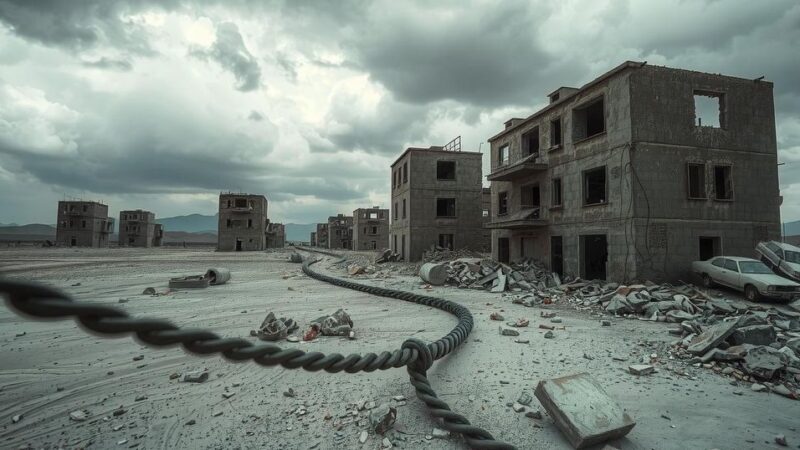Rifaat al-Assad, uncle of former Syrian leader Bashar al-Assad and known as the “Butcher of Hama,” has reportedly fled to Dubai. He faces war crimes charges in Switzerland related to the suppression of a 1982 uprising in Hama. Despite multiple family members traveling to the UAE, there is uncertainty about their future plans. The implications of his departure resonate within the wider context of political accountability for historical atrocities.
Rifaat al-Assad, uncle of the recently deposed Syrian leader Bashar al-Assad, has reportedly fled to Dubai via Lebanon, according to Lebanese security officials. Known as the “Butcher of Hama” due to his role in suppressing the 1982 Muslim Brotherhood uprising, he faces war crime charges in Switzerland. Although numerous members of the Assad family have traveled to Dubai following the ousting of Bashar al-Assad on December 8, it remains unclear whether Rifaat or any family members intend to stay there. The UAE foreign ministry has not issued a comment thus far.
Rifaat al-Assad, now in his late 80s, is the brother of the late Hafez al-Assad, who was president of Syria. He once commanded elite forces that executed a violent crackdown in Hama, resulting in over 10,000 fatalities. The Syrian Network for Human Rights has alleged the overall civilian casualties from that event could be between 30,000 to 40,000. His war crimes charges have been brought forth under an international jurisdiction principle, yet he has consistently refuted any accusations. Swiss judicial authorities have indicated that his trial may be postponed due to health concerns.
The 1982 assault on Hama has been cited as a precursor to the subsequent actions taken by Bashar al-Assad during the civil unrest that commenced in 2011. The current Syrian resistance leader, Ahmed al-Sharaa, referred to this historical event when declaring their intent to rectify longstanding grievances in the region. Beyond his military career, Rifaat al-Assad played a crucial role in Hafez al-Assad’s rise to power in 1970, although he later faced exile after losing a power struggle with his brother. Thus far, his family continues to face various legal challenges and scrutiny as they navigate their circumstances following the recent regime change in Syria.
The article centers on Rifaat al-Assad, a significant figure in Syrian history due to his role in both the military operations against the Muslim Brotherhood in 1982 and his familial relation to the Assad dynasty. His moniker, “Butcher of Hama,” stems from the violent tactics utilized during the suppression of the rebellion in Hama, which set a precedent for subsequent governmental crackdowns in Syria. The ongoing legal proceedings against him in Switzerland highlight the international community’s willingness to hold individuals accountable for war crimes. The context of his escape to Dubai reflects wider issues of political exile within the Assad family amidst the recent upheaval in Syria.
The flight of Rifaat al-Assad to Dubai underscores the continuing ramifications of the Assad family’s legacy and its tumultuous political history in Syria. His impending war crime charges and the historical context of his actions in Hama reveal the intricate connections between past violations and present accountability efforts. Furthermore, the legal implications raised by his family’s recent movements add a layer of complexity to an already turbulent narrative as the Assad dynasty faces burgeoning challenges in the wake of Bashar al-Assad’s ousting.
Original Source: www.france24.com






